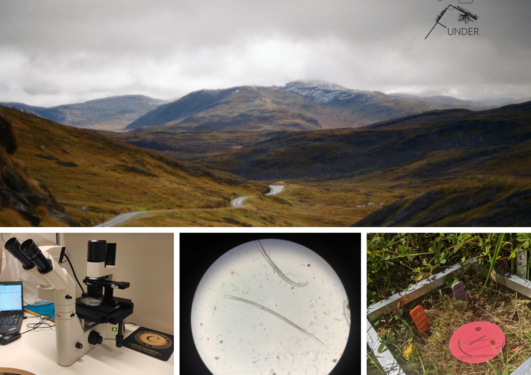Plant community responses in Vestland
Vigdis Vandvik

Hovedinnhold
Plant community responses to the direct and indirect effects of climate in the Vestland climate grid
Alpine grasslands are vulnerable to climate change and are currently changing rapidly in both plant functional group dominance and species distributions. These biotic shifts are indirect effect of climate change and influence biotic interactions. Research is needed on the effect of climate on long-term vegetation dynamics. Our research group uses a macroecological experimental approach to quantify the impacts of climate and biotic interactions on biodiversity and ecosystem functioning of alpine grasslands across factorial broad-scale temperature and precipitation gradients in Norway (the Vestland climate grid).
This MSc project will be conducted as part of the FUNDER project where the MSc student will have responsibility for assessing plant community responses to the direct and indirect effects of climate. The MSc student will extend a time-series of plant species composition following a vegetation removals experiment that has been undertaken each year from 2015 to 2019. This will form a dataset of plant community composition in response to climate and plant functional group manipulation over 8 years. The MSc student will identify plant species during the final fieldwork campaign on this experiment before the destructive harvesting of the plots for soil sampling planned for the FUNDER project in 2022, which, in collaboration with the work carried out by the rest of the FUNDER team, will allow comparisons and links between plant, animal, and microbial responses to be made.
The MSc project will explore how the biomass, biodiversity, and functional composition of three plant functional groups in grasslands respond to changes in climate and biotic interactions.
Questions:
- How does the biodiversity and functioning of grasses, forbs, and bryophytes in alpine grasslands vary along broad-scale climate gradients?
- Are the responses of these major plant functional groups to climate influenced or modified by biotic interactions among them?
- Is there a temporal shift in plant species composition and biotic interactions?
Tasks:
- 3-5 weeks of fieldwork, identifying species and analysing plant community composition
- Data management, reproducibility and Open Science practice
- Statistical analyses using R
- Share your results: write a theisis which can be published as a scientific paper, and present your work in national/international conferences
The MSc student will be part of a dynamic research team, gather experience in scientific approach and have amazing fieldwork experience in the fjords and mountains of western Norway.
Practical information:
- The project is funded through research grants
- Start: July 2022
- Place of work: University of Bergen
- Supervisors: Vigdis Vandvik and Morgane Demeaux
- Further information: Between the Fjords
To apply, send your CV and motivation letter to Morgane Demeaux before 15th of May 2022.
